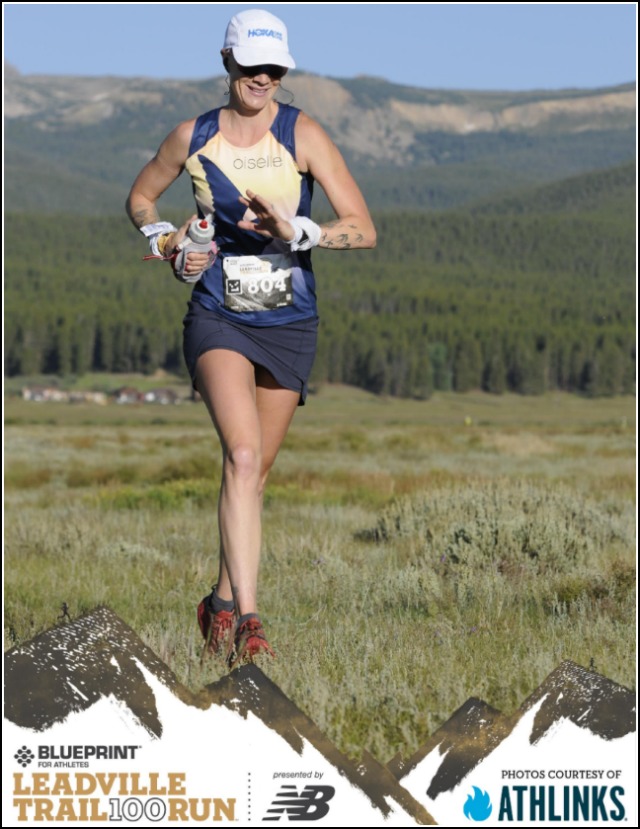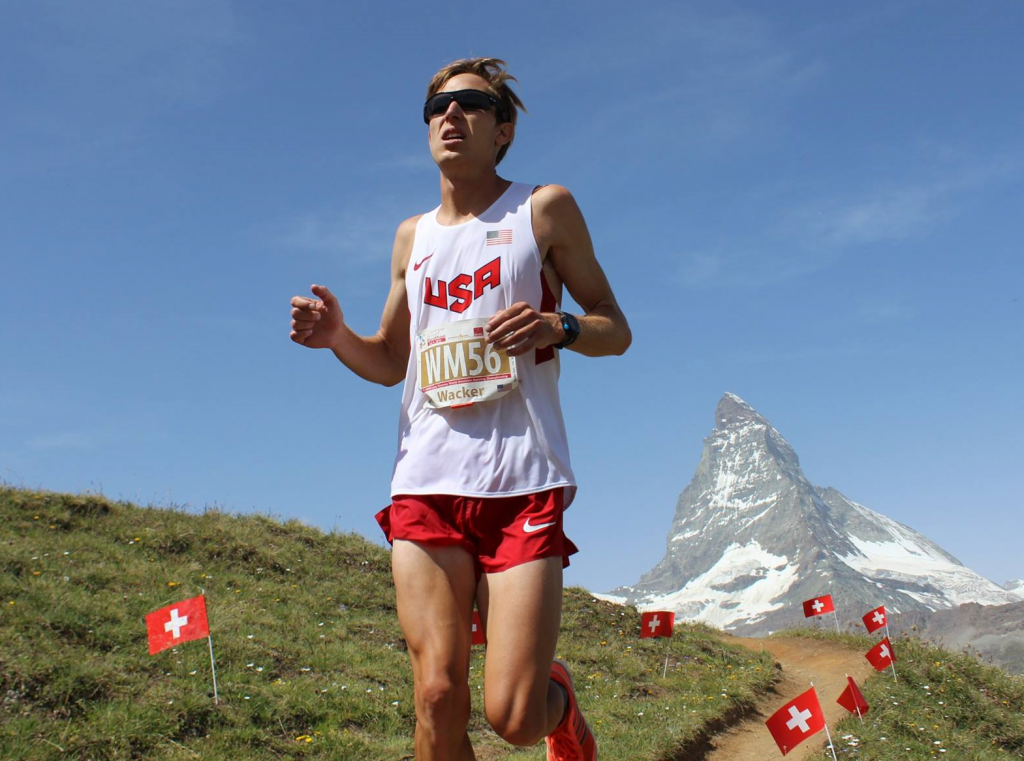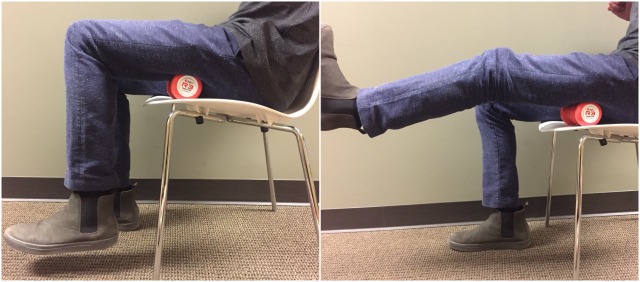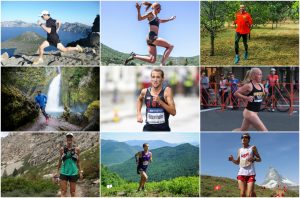Trail running can be more technical and challenging than running on the roads. With the added difficulty, how do you prevent injuries on the trails?

Just think of all the obstacles you’ll encounter while trail running:
- More dramatic elevation changes, turns, and switchbacks
- Uneven footing on more varied terrain
- Mud, water, and bugs
- Rocks, roots, fallen trees, holes, and cliff faces (watch at 1:15 here…)
There’s more going on during a typical trail run than a similar run on the roads in a suburb or city.
Interestingly enough, many of these challenges are protective from injuries!
That’s right – trail running can help you prevent injuries (just don’t run into a tree). The hills and varied terrain build athleticism and strength while slowing you down.
More strength and athleticism with a slower pace means that the injury risk of running will be lower.
So if you can get on the trails for some of your weekly mileage, do it! You’ll be a much better runner after spending a few months practicing your trail running skills.
Still, trails can be intimidating. So I thought you’d like to hear from two of the best trail runners in the world on how they like to prevent injuries.
Today you’ll be hearing from Devon Yanko (besides being a winner of the Leadville Trail 100, she’s run the 3rd fastest trail 100 miler ever for a North American running 14:52 at the 2015 Javelina 100) and Andy Wacker (1st place, 2015 USATF Trail 50k National Championships).
This is an excerpt from The Little Black Book of Prevention & Recovery which features 7 other elite athletes – it’s free, so download it now!
Devon Yanko: “Take days off!”

Devon has run more than 30 Marathon and 30 Ultras since 2006, with most being a win or course record. Other highlights:
- 3 time member of the USATF 100k National Team including 2009 Gold Medal winning team in Belgium
- 2007 RRCA Marathon National Champion
- 2010 50 mile road National Champion
- 2012 Olympic Trials marathoner (PR of 2:38:55)
- 2011 100k National Champion
- Set Fastest Known Time on the Grand Canyon R2R2R trail with Krissy Moehl in April 2011
- 3rd place at the Two Oceans Marathon (56k) and 5th in Comrades Marathon (89k, as well as first novice and first American)
- Ran the 3rd fastest trail 100 miler ever for a North American running 14:52 at the 2015 Javelina 100.
Let’s hear from Devon:
I have been running for just over 13 years and during that time, I have suffered from only 2 major injuries that took me out for a few weeks (4 weeks & 10 weeks respectively). Yes, I have durable genes, that can sustain a high level of work on a wonky imperfect (down right weird) stride, but I also do focus my training on recovery as much on training.
My favorite tactic throughout my career for staying healthy has been taking days off. Many runners cringe at the notion of days off but honestly, when I took every Monday off religiously, I never got injured except when I tripped on the trail and ended up in the ER.
If you take a day off a week, you are allowing your body to absorb the work, get in a mini reset and you are actually better able to gauge where your body is with its adaptation and recovery.
During peak training, I sometimes will move it to 1 day off per 14 days, but I find that that is on the outside edge of what my body wants to do. I do active recovery on Mondays, sometimes cross train or strength train and get a massage. I try to set myself up for a week of training and get ready to have no missed runs or workouts. The day off doesn’t affect my ability to do the volume I need (over 100 miles/week) or the quality.
The secret to preventing injuries is doing things well in advance of even the threat of injury. Taking a day off a week or two will help prevent your body from injury and help you take you training to the next level.
Connect with Devon: Follow her on Instagram. Visit her website.
Andy Wacker: Know What Works For You

Andy is an Adidas-sponsored athlete, University of Colorado at Boulder graduate, and one of the best trail and mountain runners in the world. A few of his noteworthy accomplishments:
- 2nd place, 2015 World Mountain Running Long Distance Championships
- Olympic Marathon Trails qualifier (multiple times)
- 1st place, 2015 USATF Trail 50k National Championships
- 1st place, 2014 and 2015 Mt. Evans Ascent
- 1st place, 2014 Rock ‘n’ Roll Denver Half Marathon
- 1st place, 2014 USATF Colorado 10k Championships
- 1st place, 2013 USATF Colorado 5-mile Championships
Here’s Andy:
I’m pretty minimal when it comes to “the extra stuff” we all need to do in addition to running. The one exercise I believe in is a simple active stretch for the hamstrings. I usually do two variations.
One, laying on my back I’ll lift my legs, one at a time, to ninety degrees, with strait knees.
Two, I’ll lay on my back with one leg flat on the ground and the other at a ninety-degree angle to the ground.
The difference from the first stretch is that I bend my leg at the knee for each rep. Both exercises, I will do ten reps each leg.
A seated variation, using something like the ROLL Recovery R3 can help dig in better. These pictures will help you visualize the exercise:

These are similar to Phil Wharton’s active isolated flexibility. After a long battle with IT band issues, and a hamstring tear, these helped me remain healthy.
Connect with Andy: Follow him on Twitter or Facebook.
Learn From the Best
Last year, I worked with nearly a dozen professional runners to hear their favorite recovery and injury prevention strategies.
The result is The Little Black Book of Prevention & Recovery and besides Devon and Andy, it features:
- Dathan Ritzenhein – 3x Olympian, 3x National Cross Country Champion
- Amelia Boone – 3x World’s Toughest Mudder Champion
- David Roche – 2x National Trail Running Champion
- Kelly O’Mara – professional triathlete
- Ian Sharman – 3x winner of the Leadville Trail 100
- Joseph Gray – Mount Washington American Record holder and World Mountain Running Champion
- Max King – US National Ultra Running Champion and 2x winner World Warrior Dash Champion
Each of these world-class athletes shared their favorite recovery or injury prevention strategy – and the responses are incredibly varied.
You’ll hear about post-race recovery, why you should eat a LOT, how to return to running after an injury (and what mistakes to avoid), and the virtues of eliminating busyness from your life.
Pick and choose the ideas that most resonate with you. Implement them and you’ll be a better, stronger, healthier, and faster runner.
Click on the button below to download the free book. Enjoy!
